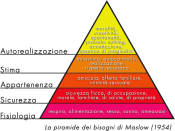The success of a manager IS dependant on the work performance of their sub-ordinates. There are many factors that may affect an employees work performance, ranging from external factors such as family problems, to the actions of a mangers. This paper will examine the factors that help a manager to be successful and effective, and therefore increasing the productivity of their employees.
Good and effective management is vital to the dynamics of an organisation. This is true in all organizations, including business and government. Society could function with ineffective managers and management to some extent, but this is not optimum. 'Good' management can map out a path to success, whereas poor management may lead to failure and possible collapse of an organisation. By considering the roles of a successful manager we can learn that they are carried out continually in society and it is in fact managers that implement them.
Henri Fayol identified the roles of a successful manager. The 'process approach' identifies these. It states that managers perform four main roles, those of planning, organizing, leading and controlling.
Planning is "A process that involves defining the organization's objectives or goals, establishing an overall strategy for achieving those goals, and developing a comprehensive hierarchy of plans to integrate and coordinate activities." (Robbins et al., 2000, p.247) One of the reasons for planning is to decide what resources are needed to carry out the plan. Planning is an essential component of work delegation for a manager's sub ordinates. If a manager has done insufficient planning of a project, sub-ordinates could become unproductive as they have not been assigned tasks to work on.
Organizing is defined as "The process of creating an organization's structure." (Robbins et al., 2000, p.351) By comparing the definition of organizing to the definition of change we can...


